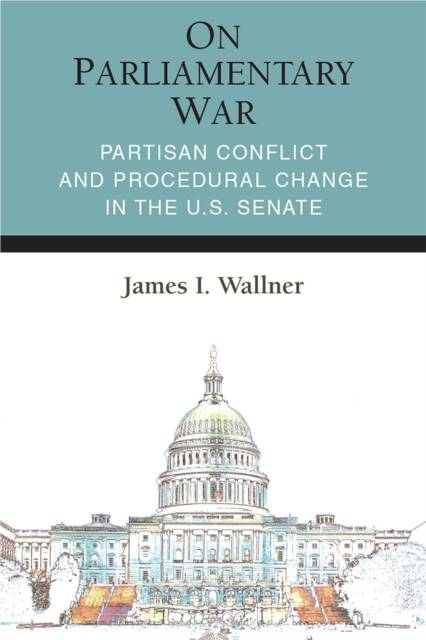
- Retrait gratuit dans votre magasin Club
- 7.000.000 titres dans notre catalogue
- Payer en toute sécurité
- Toujours un magasin près de chez vous
- Retrait gratuit dans votre magasin Club
- 7.000.0000 titres dans notre catalogue
- Payer en toute sécurité
- Toujours un magasin près de chez vous
Description
Dysfunction in the Senate is driven by the deteriorating relationship between the majority and minority parties. Regular order is virtually nonexistent and unorthodox parliamentary procedures are frequently needed to pass important legislation. Democrats and Republicans are fighting a parliamentary war in the Senate to steer the future of the country. James Wallner presents a bargaining model of procedural change to explain the persistence of the filibuster in this polarized environment, focusing on the dynamics responsible for contested procedural change. Wallner's model explains why Senate majorities have historically tolerated the filibuster, even when it has defeated their agendas, despite having the power to eliminate it. It also shows why the then-Democratic majority deployed the nuclear option to eliminate the filibuster for an Obama judicial nominee in 2013. On Parliamentary War's game-theory approach unveils the relationship between partisan conflict and procedural change in the Senate.
Spécifications
Parties prenantes
- Auteur(s) :
- Editeur:
Contenu
- Nombre de pages :
- 270
- Langue:
- Anglais
- Collection :
Caractéristiques
- EAN:
- 9780472037759
- Date de parution :
- 02-12-19
- Format:
- Livre broché
- Format numérique:
- Trade paperback (VS)
- Dimensions :
- 152 mm x 226 mm
- Poids :
- 381 g

Les avis
Nous publions uniquement les avis qui respectent les conditions requises. Consultez nos conditions pour les avis.






